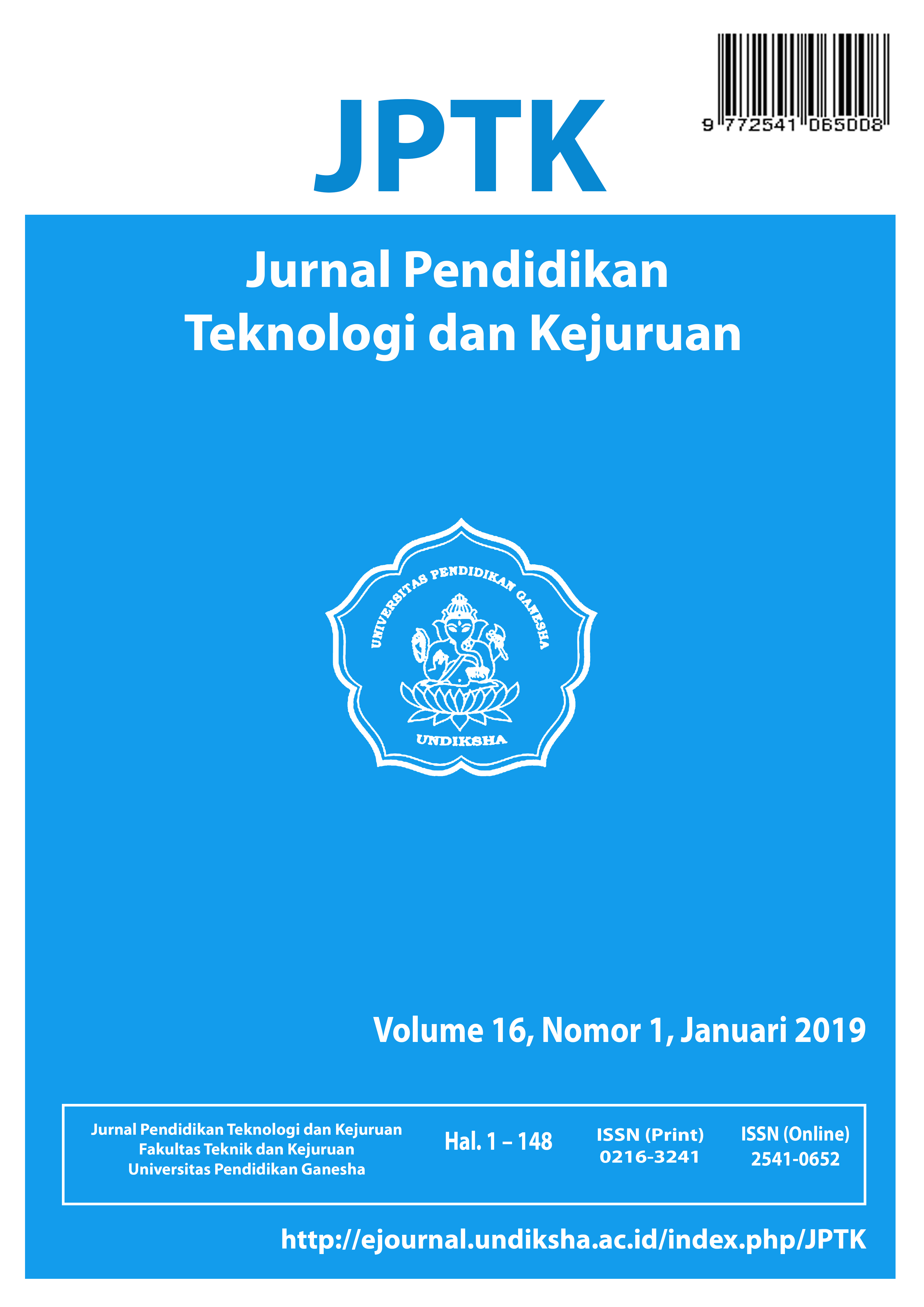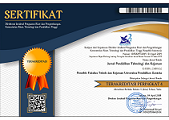MODEL PEER ASSESSMENT BERBASIS TEKNOLOGI INFORMASI DAN KOMUNIKASI
DOI:
https://doi.org/10.23887/jptk-undiksha.v16i1.16619Abstract
Tujuan dari penelitian ini adalah untuk mengembangkan model peer assessment berbasis teknologi informasi dan komunikasi (TIK). Pelibatan peserta didik dalam proses penilaian melalui peer assessment membutuhkan waktu yang tidak sedikit. Oleh karena itu, kemajuan dan keunggulan TIK dapat digunakan dalam pengembangan sistem peer assessment berbasis komputer. Penelitian ini merupakan pengembangan model penilaian menerapkan model 4D (Define, Design, Develop, dan Disseminate). Pada fase define telah dilakukan need assessment yaitu survey lapangan yang menyasar guru-guru SMA dan SMK di beberapa sekolah di Kabupaten Buleleng, Bali. Survey dilakukan dengan penyebaran angket yang berkaitan dengan penilaian peserta didik. Tahap design telah dilakukan perancangan model peer assessment yang melibatkan peserta didik dalam penilaian. Selanjutnya telah dikembangkan prototipe sistem penilaian berbasis komputer pada tahapan developmentDownloads
Published
2019-01-30
Issue
Section
JPTK
License
Authors who publish with the JPTK agree to the following terms:- Authors retain copyright and grant the journal the right of first publication with the work simultaneously licensed under a Creative Commons Attribution License (CC BY-SA 4.0) that allows others to share the work with an acknowledgment of the work's authorship and initial publication in this journal
- Authors are able to enter into separate, additional contractual arrangements for the non-exclusive distribution of the journal's published version of the work (e.g., post it to an institutional repository or publish it in a book), with an acknowledgment of its initial publication in this journal.
- Authors are permitted and encouraged to post their work online (e.g., in institutional repositories or on their website) prior to and during the submission process, as it can lead to productive exchanges, as well as earlier and greater citation of published work. (See The Effect of Open Access)












